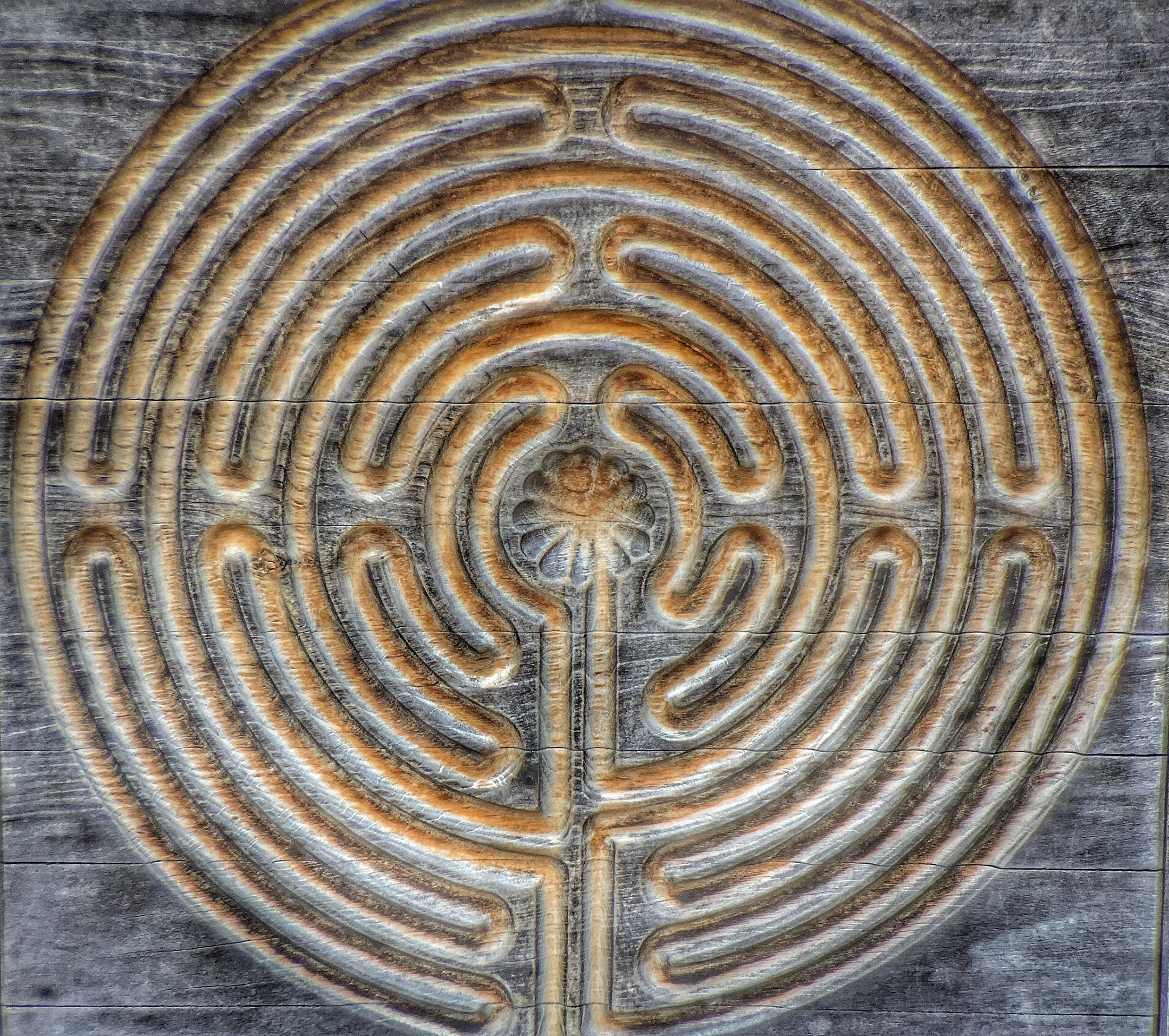The Sixth Day of Christmas: (Re)Collecting the Year
Are you tired of bucket lists and New Year's resolutions? We would like to invite you for a time of recollection instead. You can do this by walking in silence, by looking back on the reflections of this journey so far, or by taking some time to look with kindness on your life using the practice we provide below.
The first time I was introduced to a contemplative walking towards the New Year was more than a decade ago during my doctoral studies at the Jesuit School of Philosophy in Munich. A Jesuit priest led us into a day of silent reflection about the old and the new year. I experienced this silent reflection as a blessed and fulfilled time, an experience I had not been familiar with before. Since then, I long for this time of peace and quiet at the turning of the year, taking time to let go of the old and welcome the new.
So in the next days we invite you to walk along with us towards the threshold of the new year, pausing at New Year's Eve and welcoming the first day of the new year with replenished spirits.
Søren Kierkegaard, the Danish spiritual writer, draws the image of life's journey in one of his "Upbuilding Discourses" by introducing us to two guides from beyond:
"Over every human being’s journey through life there watches a providence who provides everyone two guides: the one calls forward, the other calls back. Yet they do not contradict each other, the two guides, nor do they let the traveler stand there irresolute, confused by the double call; on the contrary, the two have an eternal understanding with each other, for the one calls forward to the good, the other calls back from the evil. Nor are they blind guides – this is precisely why they are two, because in order to safeguard the journey there must be a looking ahead and a looking back."
Kierkegaard is skeptical about the mystic life. He thinks our goal should not be unity with the Divine, but instead to walk courageously through our life, holding together those tensions that seem at first glance contradictory. This dialectical understanding of existence comes also through in his spiritual texts. Here he describes the task of the pilgrim to welcome both guides, the one who calls us forward, and the other one, who "coming along afterward, laboriously gathers up the experience."
You might know how easy it is to get stuck with just the one guide or the other. Sometimes we are so worried about our future, that we miss to live in the present time. Sometimes we are so lost in regret or guilt for the past that we forget about our hope for the future.
But the present time, the fulfilled moment, the only fleeting moment in time we really have, is when we are able to walk forward while, at the same time, taking our past experience with us. For this reason, I like to use Kierkegaard's texts at the threshold to the new year, when the old has not passed yet and the new has not yet begun.
“Life must be understood backwards but lived forward...”
A Practice of Recollection
So here are some questions for you approaching this threshold. You may do this practice at one sitting, or across several days. Find a quiet place to journal, perhaps with a candle and a glass of wine. Sit comfortably as you write your reflections and reactions to these questions. Remember, we are on the threshold of a New Year. From here, we can follow our guides and look both back and forward. We are safe here, with guides to counsel and protect us.
A. Looking back.
What experiences surprised, challenged, or enriched you? What gifts, surprises, blessings, or joyful moments can you recall?
What changes have you lived through, what transitions or journeys, and what insights did you gain from them?
For what are you grateful? What are you still struggling with?
B. Looking ahead.
What do you want to take with you into the New Year? Which experiences, connections, or relationships do you want to build on?
What do you wishes or hopes for the New Year?
With what or whom do you want to make peace, leave behind, or give closure?
C. Your guides
Now imagine your guides. What do your guides look like, who are they?
Can you give each a title? Worrier, Complainer, Striver, Hunter, Visionary, Warrior? Pilgrim, Sage, Helper, Navigator, Mother?
Where do you find your wise voices, how can you hear them? What do they call you to do?
“People are going back and forth across the threshold where the two worlds touch.
The door is round and open.
Don’t go back to sleep.”
(original posted 12/30/2017)


